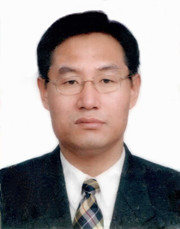E-daily article on January 19th: "We will take the lead in commercializing E-vehicles with ultimate materials... I'll confirm capacity, safety, and everything else."
Professor Sun Yang-guk from the Department of Energy Engineering and Director of Energy Storage and Conversion Materials Research at Hanyang University was introduced as the leading science pioneer in the use of electric vehicles using ultimate materials.

As a researcher who has studied next-generation secondary battery technology, Professor Sun spent more than 20 years studying agricultural equipment-type anode materials, which are key materials for electric vehicles, since his appointment to Hanyang University in 2000. Last year, he was selected as the world's top 1% researcher in chemistry and materials science.
In an interview with E-daily on January 19th, Professor Sun said, "In the next three years, the traveling distance and price elements of electric vehicles are expected to improve and will be able to compete equally with combustion engine vehicles. Korea needs to constantly sustain their research so that they can keep up with the current trend."
Out of the key battery components of electric vehicles, the anode material is a key material that leads to price reduction while increasing the traveling distance. Research is being conducted to increase nickel content among nickel, cobalt, and manganese (NCM) used in anode materials. A higher percentage of nickel allows a higher battery capacity which can increase the traveling distance of electric vehicles.
Professor Sun increased the nickel content in the center through the development of agricultural tools-type anode materials and increased energy density by surrounding them with cobalt and manganese. Professor Sun's development method was applied to Kia Motors' Niro EV, China's Beijing Automotive Group's Arc Fox, and Hyundai Motors' Kona EV for export to Europe.
Anode materials that are distributed in agricultural tools can also be applied to all solid batteries and next-generation batteries. In response, Professor Sun is carrying out research to increase the traveling distance by applying agricultural equipment-type anode materials to lithium-ion batteries to supplement durability to prevent ignition or explosion and by applying technology to all solid batteries to increase energy density.
Currently, electric vehicles have limitations in terms of commercialization due to travel distance and charging compared to internal combustion engine cars. Professor Sun predicted that the commercialization of electric vehicles will come when these problems are solved.
Professor Sun stated, "The price and the traveling distance of electric vehicles will be improved and will eventually compete equally with combustion engine cars in three years time. I hope to continue to develop positive materials and contribute to sustaining the development of e-mobility in the near future."
He also added, "Like the government's recent 'carbon neutral 2050' policy, more energy storage devices should be developed to enhance the environmental situation. Hence, we plan to focus on researching and developing next-generation energy storage devices."

